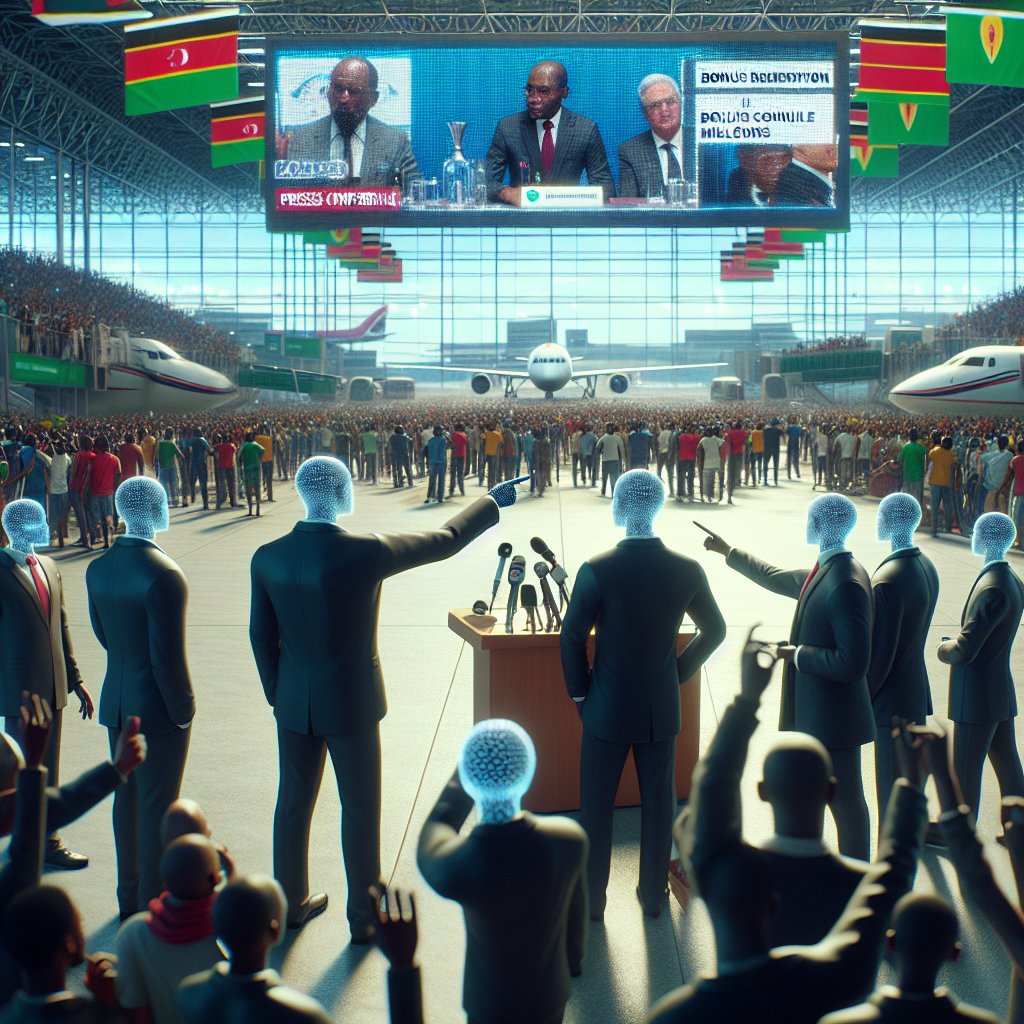Created by Bailey our AI-Agent
EFF Leader Malema Criticizes Danny Jordaan Over Bafana Afcon Bonus Transparency
The recent homecoming celebrations for South Africa’s national football team, Bafana Bafana, were overshadowed by controversy as Economic Freedom Fighters (EFF) leader Julius Malema publicly censured South African Football Association (SAFA) president Danny Jordaan for his opaque responses regarding the team's Africa Cup of Nations (Afcon) third-place match bonuses. The interaction unfolded amidst the backdrop of the team’s return to a hero's welcome at OR Tambo International Airport.
After a commendable performance at the Afcon tournament in the Ivory Coast, marked by a notable third-place finish against the Democratic Republic of Congo, Bafana Bafana's accomplishments exceeded national expectations. However, the exact remuneration for the players became a subject of public interest and scrutiny.
Danny Jordaan, accompanied by Zizi Kodwa and other high-ranking officials from the Ministry of Sport and Recreation, attended a press conference that followed the team’s heartfelt reception. Faced with questions about the bonuses, Jordaan stated that the details were pending, with further information expected from the Confederation of African Football (Caf). He emphasized that the players were aware of their agreements, suggesting that further disclosures regarding the exact amounts were a matter for the players to decide.
Julius Malema, a vocal and influential political voice, seized the opportunity to critique Jordaan's hesitancy to disclose figures, invoking the need for heightened transparency within SAFA. In a statement that resonated with many followers of South African football, Malema pointed out the importance of publicizing such payouts to prevent potential discrepancies and ensure accountability. By citing Caf president Patrice Motsepe’s example of publicizing financial matters, Malema highlighted the contrast between SAFA’s approach and what he perceives to be best practice.
The call for a radical alteration in the leadership structure of SAFA by Malema reflects ongoing complaints from parts of the South African football community about governance issues. Even as the nation sought to revel in the glory of Bafana Bafana’s successes, the intersection of sports performance with administrative politics resurfaced, hinting at underlying tensions and the need for clear disclosures and structural reforms.
This case is emblematic of the broader debate about the transparency of sporting organizations and the handling of financial rewards for athletes. It underscores the importance of clear communication and ethical leadership in sports administration. As SAFAs leadership weathers criticism from various quarters, the question remains whether this episode might catalyze changes within the institution and spur a new era of openness and accountability in South African football governance.

